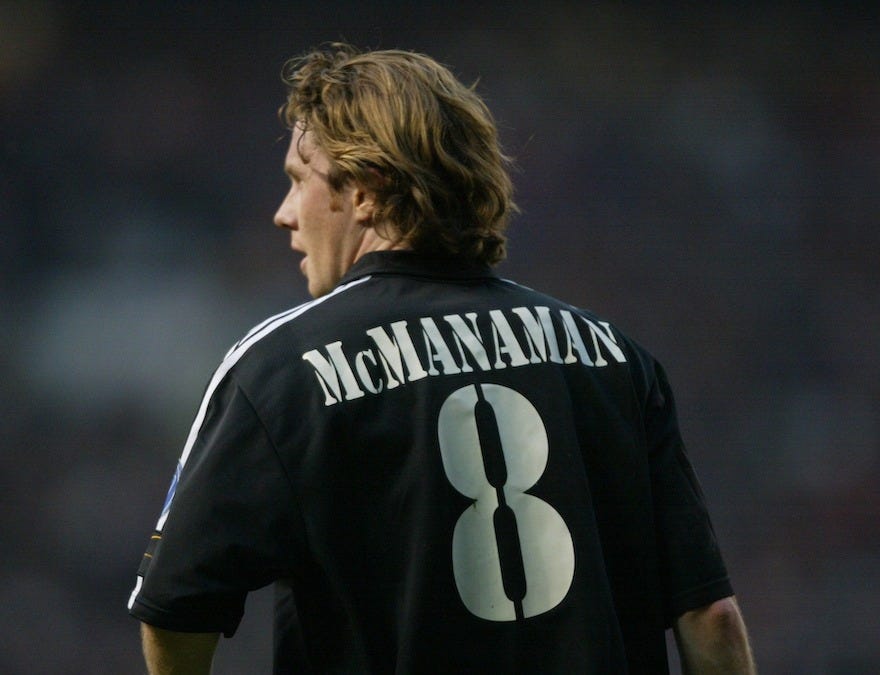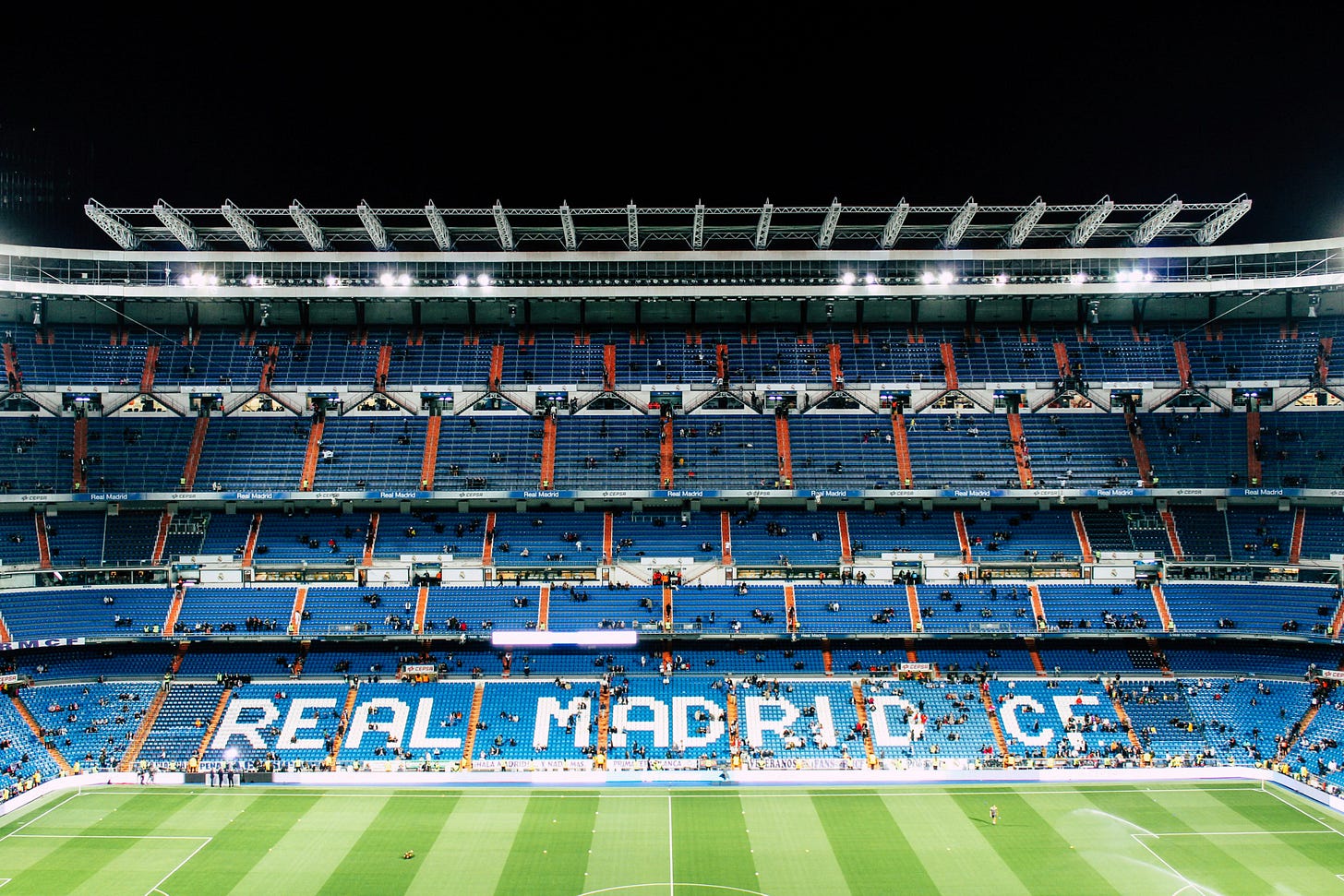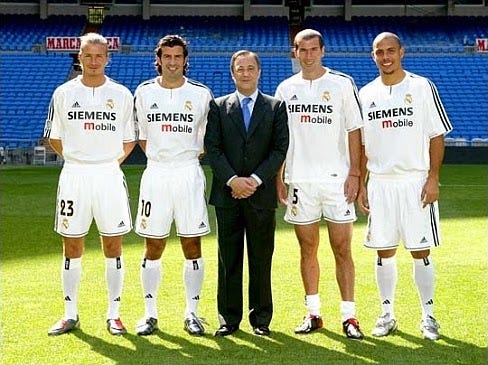Steve McManaman's Galáctico Moment
The ESPN commentator joined Real Madrid just before the Florentino Pérez revolution in 2000. What was it like to watch it all happen up close?
Roberto Carlos launched a long throw into the box, and Valencia defender Miroslav Đukić craned his neck to pop it out to the edge of the area. The Serbian in bright orange didn’t get the distance required on the header, though, and it fell to the #8 in Real Madrid black that night in Paris, May 2000, the Champions League final.
Steve McManaman stepped onto it at the top of the penalty area. He hitched his left leg up as he hopped and struck the ball with his right boot, a karate kick, lacing it into the bottom corner on the bounce. It was 2-0, game won. Madrid were European champions for the eighth time. Little did McManaman and his teammates know that so much at the club was about to change.
Real Madrid president Lorenzo Sanz was promptly turfed out of office that summer despite delivering the Champions League twice in three years, because Florentino Pérez was running on the promise that he’d take Luís Figo away from eternal rivals FC Barcelona. Pérez won the election, he got Figo, and thus was born the Galácticos era, when Madrid signed a steady stream of superstars each summer and McManaman continually encountered famous new faces in the dressing room.
What was that like? And how did it all go wrong, to the point that this grand revolution was ultimately considered a sporting failure?
Los Blancos will kick off their 2025/26 season on Tuesday when they host Osasuna at the Estadio Santiago Bernabéu. At an ESPN event last week in New York to launch the network’s coverage of La Liga in the U.S. this season, I spoke with McManaman — now a co-commentator calling the biggest games in Spanish football for ESPN — about his time amongst the Galácticos.
You went to Madrid before the Galáctico era. Was there a moment when you looked around the dressing room and realized things had changed, that the galaxy of stars had arrived? Did it feel different?
No, you know what? Weirdly enough, it only felt different right at the end, when David1 came in. Because we brought in Luís2, and it was fine, because he had to — because he was only one, he had to integrate himself into our group, because we had just won the Champions League. The year after that, we won the league and got knocked out in the semifinals.
Then Zizou3 came in, and again, because there wasn't a plethora of new signings, he had to integrate himself, and nothing much changed. Same manager, same preseasons.
And then — it wasn’t David’s fault, of course — but David came in. A couple of weeks before the end of the season, they announced the signing. Then we won the league. Then [manager] Vicente del Bosque got unceremoniously sacked, and then they reneged on Fernando Hierro’s contract, which was awful. And that’s when you felt it had changed. It wasn’t a player thing, because of a new signing. It was that.
And then our preseason when Carlos Queiroz came in, instead of going to the Alps or going to Austria — two weeks in a training camp, running and working hard — we had our preseason training in Kunming, China, which was bananas. And then we went to Bangkok, and we shook hands with people. And then we went to Hong Kong, and we did exactly the same. And we had players in our team, experienced players, multiple-Champions League-winners, saying, “We need to train. We need to work hard.”
And that's when you felt that it had gone. That was the start of the end of that particular era. Because a lot of us left. I left, Morientes4 left, I think Makélélé5 left. And that’s when they had the superstars, but they didn’t win anything for four or five years, and you knew why. You knew why. They went the other way with it, commercially trying to make a lot of money instead of looking after the team.
But I didn’t think it was a specific player. It was what was happening upstairs and around, and this, “We need to generate as much money as we possibly can.” They came out with that “Zidanes y Pavones” statement at the time, where the president thought he could buy a superstar, not really have many middle people, but have the academy players coming through. And it was just ridiculous, because it was never, ever going to work. And you see now, everybody in their team now is an international, and that's when they've been the most successful.
In training in those days, it was Roberto Carlos and Zidane — you must have seen some incredible stuff.




